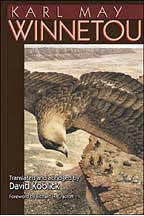
I wrote my first book back in 1995. It is a nonfiction book titled Matsutake Mushroom, which was published in 1997. It is simply a true story about the harvest and sale of wild forest mushrooms, from the Pacific Northwest, for profit.
My education began when I started selling the book.

https://www.amazon.com/West-Big-River-Western-Novels-ebook/dp/B01I5T0LVA/ref=asap_bc?ie=UTF8
I visited the publisher to pick up a few copies to get started. When the publisher learned of my intended five-day, three-state tour, she insisted that I take on 400 copies. Despite my reluctance to attempt to sell so many, I took the books. What the heck, if they did not sell, I could always bring them back.
I was received warmly by many small book stores and convenience stores. The average sale was three to five copies. I visited the area where the actual story of the book took place and found that I had many critics. Men would thumb the pages and ask, “Where's the pictures?” Women would ask, “What kind of recipes are in here?” That book contained neither. Where did I go wrong? The story is based on actual facts, which no one can dispute. It seemed that some folks expected something other than what I was offering but, thankfully, by the end of my tour I had sold over 300 copies.
I learned quickly that if you are going to write nonfiction, number one, you better know what you are talking about and number two, don't get too far off the beaten path of what is expected. The book, hard copy only, still sells modestly.
Around 1995 I turned to writing what was and is my predominant interest, which is western fiction.
I never expected to write award winning stories such as those by greats Louis L'Amour, Zane Grey or Max Brand but I felt that I could spin a yarn, which could be construed as actually happening.

https://www.amazon.com/Code-West-Classic-Western-Novels-ebook/dp/B01JM2UONO/ref=asap_bc?ie=UTF8
I began writing short stories and presented them for consideration with mild success.

https://www.amazon.com/Traditional-West-Western-Fictioneers-ebook/dp/B005E1JI8U/ref=asap_bc?ie=UTF8
In 2011 I was accepted as a member of Western Fictioneers. Happy to correspond with well known authors Robert Randisi, James Reasoner, Frank Roderus, Jory Sherman and others. I was greatly inspired by having a story included in the Fictioneers first anthology, The Traditional West. It got the creative juices flowing.
Troy, Livia, Cheryl and others offered and encouraged me to write compelling stories that aren't necessarily true but could have happened, if given enough historical facts to support the tale. The more facts you can produce, the better.

https://www.amazon.com/Once-Drover-Jerry-Guin-ebook/dp/B01D7P3MD6/ref=asap_bc?ie=UTF8
The actual history involved in a story could leave a writer scratching his head to find a way around it. I will not attempt to change history in any of my stories. The story has to revolve around the facts.
The Wolf Creek series is purely fiction and locked into 1871, now 1872.
In Wolf Creek 16, Luck of The Draw, part two, one of my characters is Luke Short, yes the famous gambler and gunman. Young Luke Short, eighteen at the time, according to history, did participate in driving a herd of cattle to Abilene, Kansas. He wanted to be a gambler so bad that he gave up trailing cattle and set out to make his own way as a professional gambler.

https://www.amazon.com/Wolf-Creek-Luck-Draw-part-ebook/dp/B01GFCWVR6/ref=asap_bc?ie=UTF8
For the purpose of putting a well known name into 'Bet The Boots' I used Luke Short. One, he was a gambler. Two he was in Abilene in 1871 and turned to gambling as a way of life. So I had him stop into Wolf Creek for the poker tournament. In actuality, as far as anyone knows, after Luke left Abilene he was known to be selling rotgut whiskey in a buffalo camp on the plains near what would later become Dodge City.
If Wolf Creek existed at the time, lured by the gambling, why wouldn't Luke pay a visit? In my mind his appearance in the story is believable without disturbing historical facts.
Stretching the truth a little, such as a potion salesman's claims of the miracle cures by the consumption of his product is as far as I will go in pushing the envelope.
Creating heroes, hardships, finding a lost love or having a character cheat, steal, or kill others are enough to keep any writer busy crafting a believable story around historical facts.

https://www.amazon.com/Wolf-Creek-Hunters-Moon-18/dp/1540539717/ref=asap_bc?ie=UTF8
Nobody can change history and a good story will reflect the facts as they are.
Jerry Guin is a member of Western Fictioneers and Western Writers of America.
He has authored more than 40 western fiction short stories and 7 western novels.
His latest novel– Once a Drover – was first introduced in 2014 by Western Trailblazer.
It was re-introduced by Sundown Press in 2016.








